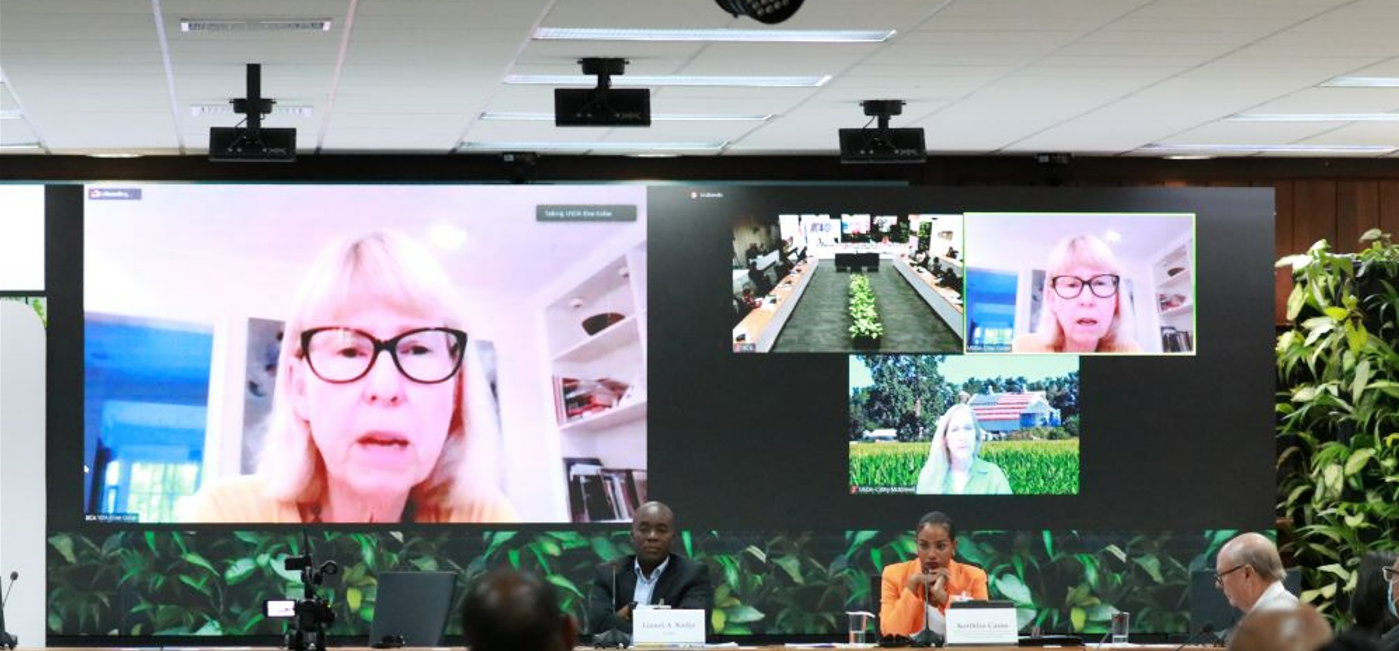The data indicate that, in developing countries, productivity growth has slowed down in most regions over the past 20 years.

San José, 28 July 2022 (IICA) – The time has come to focus the world’s efforts on increasing agricultural productivity in order to produce more with less.
This was the key message of Elise Golan, Director of Sustainable Development at the Office of the Chief Economist of the United States Department of Agriculture (USDA), at the first “Africa-Americas Summit on Agricultural and Food Systems “, which is taking place in Costa Rica.
Golan presented the Sustainable Productivity Growth Coalition (SPGC) to ministers, deputy ministers and senior officials of Agriculture, Environment and Science and Technology from 40 countries present at the headquarters of the Inter-American Institute for Cooperation on Agriculture (IICA) or connected via videoconference.
The Coalition was launched in 2021 during the UN Food Systems Summit, with the aim of accelerating the transition towards more sustainable agri-food systems through increased production that optimizes agricultural sustainability in its social, economic and environmental dimensions.
“Agriculture is facing critical challenges, which have been exacerbated by the Russian invasion of Ukraine and the impact of climate change,” said Golan, who argued that agricultural productivity growth is a very powerful machine for alleviating food insecurity and poverty. “Continuing to improve agricultural productivity is imperative,” she noted.
However, the expert warned that agricultural productivity growth is not the same as production growth. In this sense, she explained that productivity measures the use of inputs, and so increasing productivity means producing the same amount or more food with less use of water, labor and the usual resources. “This includes all types of inputs and of course natural resources,” she warned.
“This is why we say that the time has come to focus our efforts on increasing agricultural productivity,” she added.
The coalition was founded under the premise that increasing agricultural productivity is a critical issue in meeting global challenges, and efforts must be made to accelerate it.
However, the data indicate that, in developing countries, productivity growth has slowed down in most regions over the past 20 years. The region of Latin America and the Caribbean has shown the most significant deceleration, followed by Asia. In sub-Saharan Africa, agricultural productivity was already low in the 2000s and fell even further in the following decade.
The consequences of the decrease in agricultural productivity include: an increase in food prices; more food insecurity and hunger; higher levels of poverty; greater use of natural resources; and more greenhouse gas emissions, which cause climate change.
For this reason, the Coalition takes a holistic approach to agricultural productivity that considers the impacts of and interrelationships between multiple aspects, including food security, nutrition, farmers’ income, the well-being of rural communities, equity and inclusion, food waste, biodiversity conservation, use of resources and climate change mitigation and adaptation.
Cathy McKinnell, Senior Policy Advisor for the USDA Foreign Agricultural Service, added that productivity growth is key for humanity to achieve six of the Sustainable Development Goals (SDGs): 1 (no poverty), 2 (zero hunger), 8 (decent work and economic growth), 12 (responsible consumption and production), 13 (climate action) and 15 (life on land).
The Coalition has 100 members, including 20 countries representing all regions of the world, as well as universities, research institutions, foundations, and private industry companies.
IICA is one of its members, along with countries from the Americas and Africa, including Brazil, Canada, Colombia, the Dominican Republic, Honduras, Paraguay, Ghana, Liberia and Mauritania.
More information:
Institutional Communication Division
Comunicación.institucional@iica.int











